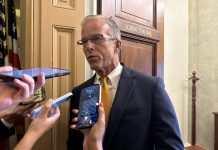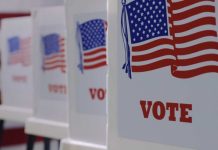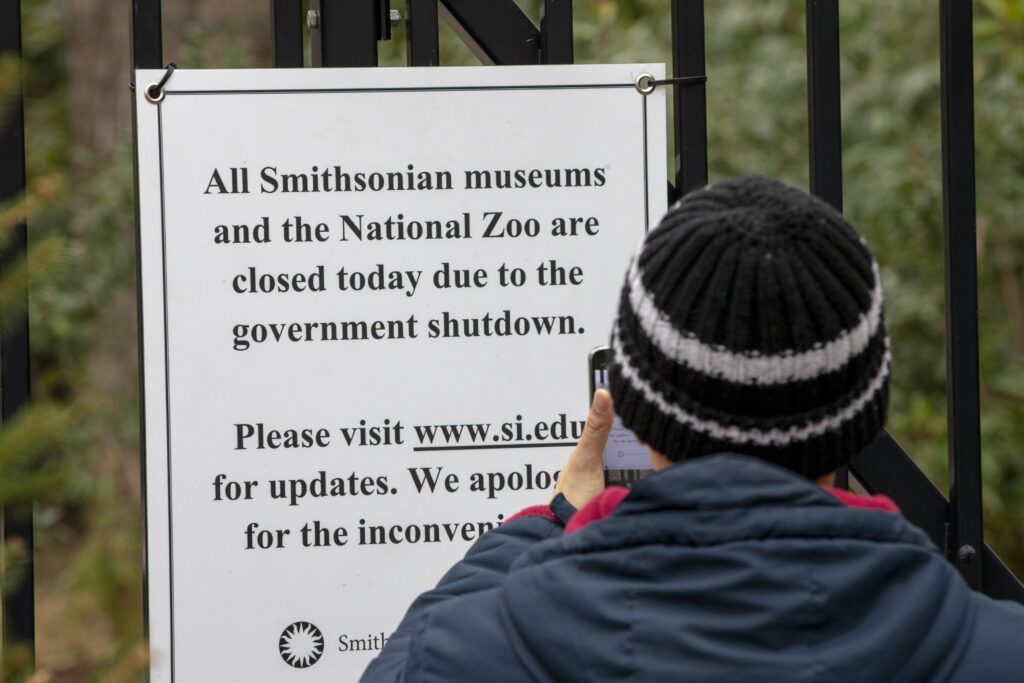
People take photos of the closed signs at the Smithsonian National Zoo, which was closed to the public due to the government shutdown on Jan. 2, 2019 in Washington, D.C. (Photo by Tasos Katopodis/Getty Images)
WASHINGTON — Democrats and Republicans on Capitol Hill have entered a stalemate over whether to fund the government for seven weeks or begin a shutdown that could last considerably longer, amid high partisan tensions.
Lawmakers, it seems, did not learn from two earlier shutdowns that produced zero results for Republicans who tried to force their policy preferences on Democrats.
The 2013 shutdown that lasted 16 days began with GOP demands to repeal the Affordable Care Act, and ended with it remaining the law of the land.
The 2018-2019 shutdown started when President Donald Trump insisted on additional funding for a border wall, but concluded 35 days later with the same amount of money included in the original appropriations bill.
This time around, however, it’s Democrats making demands ahead of a funding deadline and striking a markedly different tone from just a few months ago.
Senate Minority Leader Chuck Schumer said earlier this year that shutting down the government would cede considerable power to the Trump administration and represented a far worse option than advancing a Republican-drafted stopgap spending bill.
“President Trump and Republican leaders would like nothing more than to pull us into the mud of a protracted government shutdown,” Schumer said in March. “For Donald Trump, a shutdown would be a gift. It would be the best distraction he could ask for from his awful agenda.”
But that has all changed in the six months since.
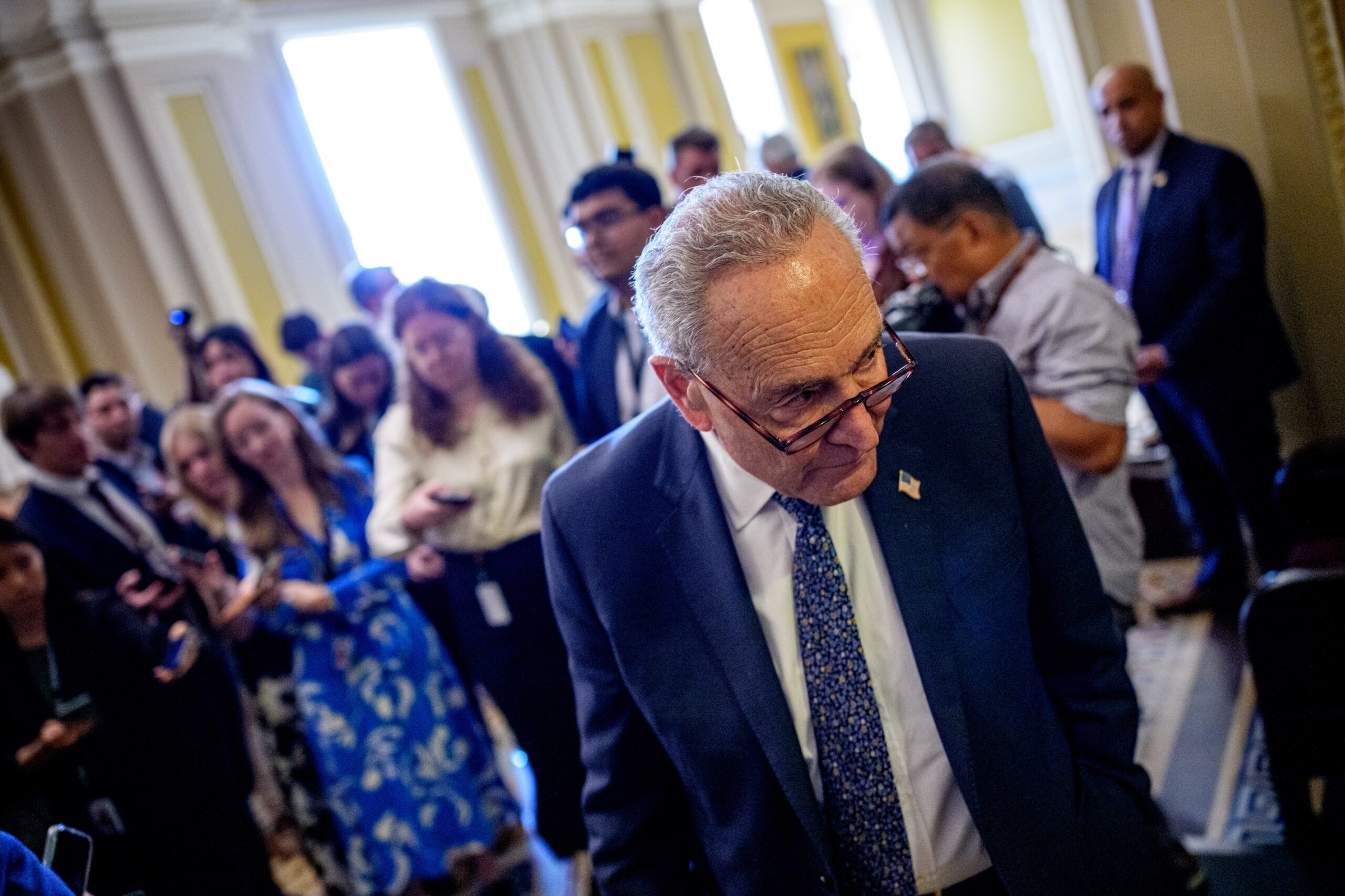
Schumer, who fielded considerable blowback from the Democratic base in March, now says his party will not help GOP leaders advance a seven-week temporary funding patch ahead of the Oct. 1 shutdown deadline, since — encouraged by Trump — they didn’t negotiate the bill.
“Democrats don’t want a shutdown, but Republicans cannot shut Democrats out of the process and pretend like the last nine months have been business as usual,” Schumer said. ”Republicans know that these abuses can’t just continue as if everything is just fine.”
If Schumer sticks to that stance and is joined by enough other Democrats and independents, the Senate will not have sufficient votes for the funding patch.
Republicans hold majorities in both chambers of Congress but cannot advance legislation in the Senate without the support of at least 60 lawmakers, which typically forces bipartisanship on major issues.
Schumer on a ‘fool’s errand’?
Republicans and Democrats interviewed by States Newsroom said the most recent shutdowns show that forcing a funding lapse doesn’t lead to policy wins or political victories. But they appeared to acknowledge the increasing likelihood of one beginning next month.
West Virginia Republican Sen. Shelley Moore Capito referred to the prior government shutdowns as a “misery march” and deferred to Democrats on how exactly lawmakers would get out of a funding lapse if one begins.
“When a shutdown gets predicated on a policy position that’s never going to work — which I think is what Schumer’s brought to (Majority Leader John Thune) — I think that it’s a fool’s errand, quite frankly,” Capito said. “And it’s unfair to the American people.”
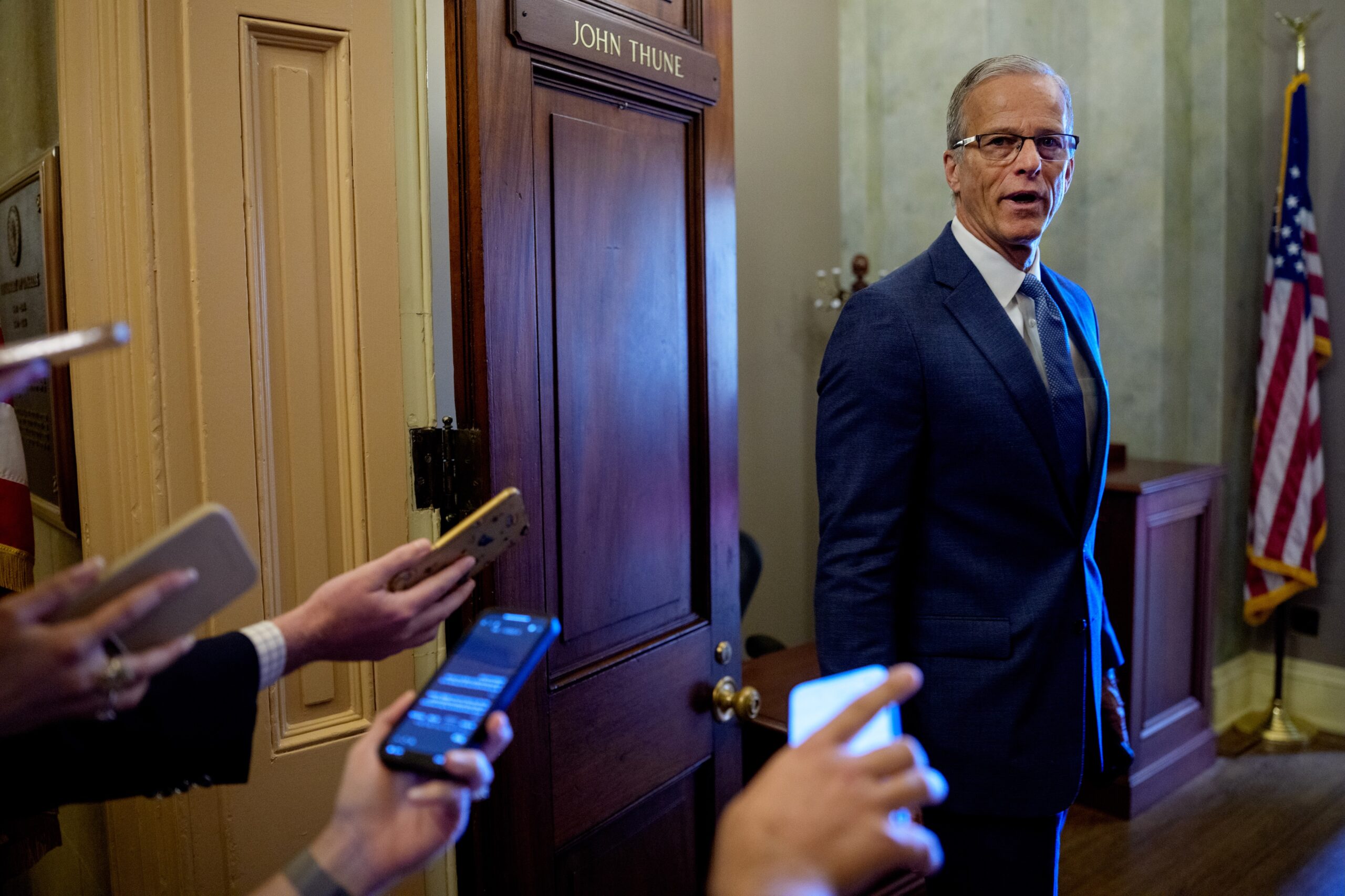
Louisiana Republican Sen. John Kennedy said Schumer should consider what Trump will do in the event of a shutdown, when the president has considerable authority to determine which federal workers and operations are exempt and which are not.
“He will have pretty much unfettered discretion, at least in his mind, to do whatever he wants to do,” Kennedy said. “And I personally think the president will make it very painful.”
Exempt federal employees continue to work during a shutdown and often handle the preservation of life or property, or national security issues. Non-exempt workers are essentially furloughed. Both categories receive back pay once a shutdown ends.
Trump bars negotiations with Dems
Hawaii Democratic Sen. Brian Schatz said that Trump telling Republicans not to negotiate a short-term stopgap bill with Democrats led to the impasse.
“Shutdowns are terrible and they should be avoided. And Donald Trump may or may not know that the only way to avoid a shutdown is to work with both parties,” Schatz said. “And yesterday morning … he said, ‘I don’t need to deal with the Democrats.’ And so, Godspeed.”
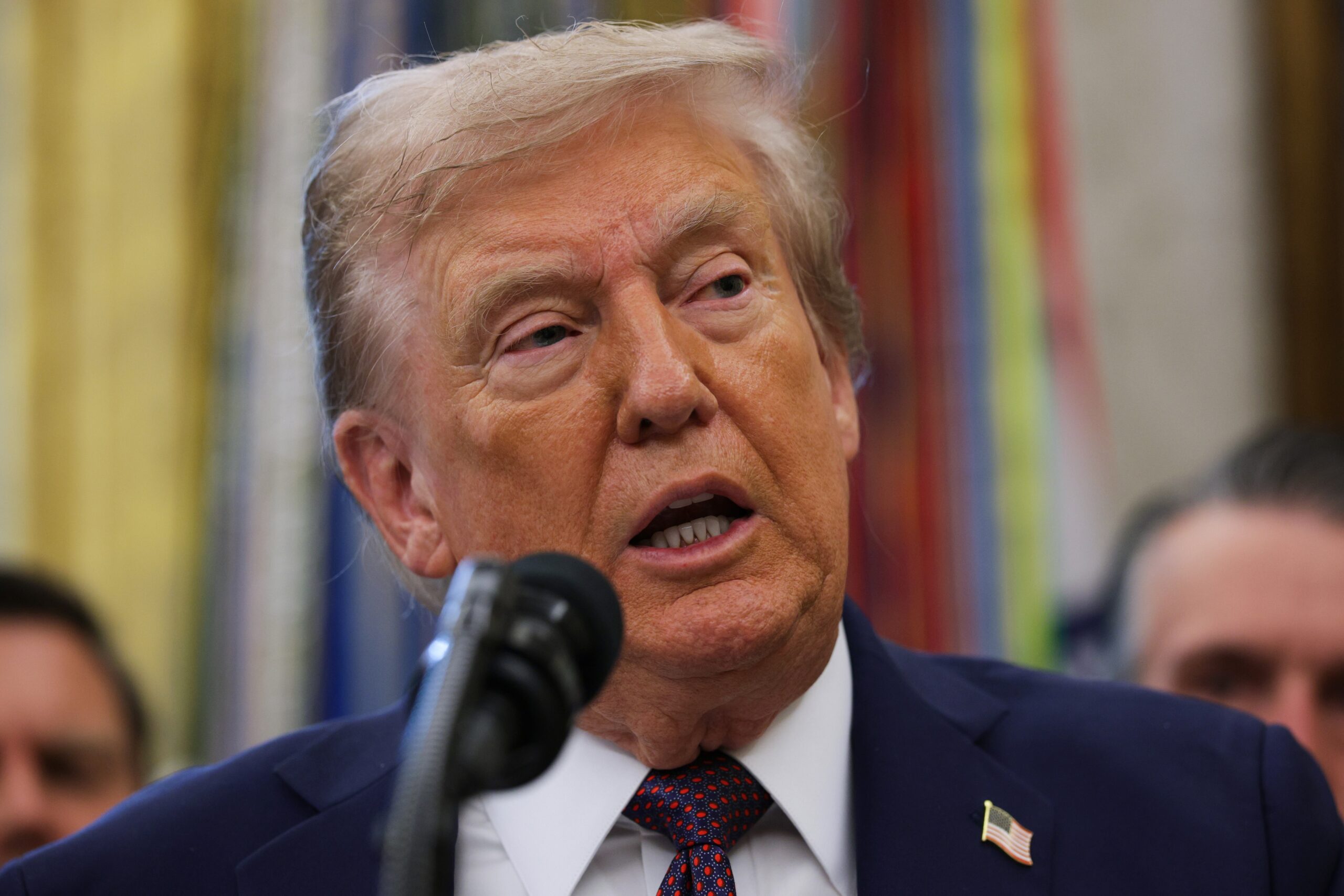
Connecticut Democratic Sen. Chris Murphy said nothing can be accomplished unless Republican leaders begin serious talks over government funding.
“Right now, we don’t even have a negotiation,” Murphy said. “The basic responsibility of a majority party when you’re working on a budget is to negotiate with a minority. You need our votes. So who knows what’s possible because right now, they’re refusing to talk to Democrats.”
Alabama Republican Sen. Katie Britt said Schumer’s change in stance on shutdowns is largely political and stems from the criticism he experienced from his own party earlier this year after helping advance the March stopgap.
Nearly every House Democrat voted against that six-month stopgap bill and many voiced frustrations after Schumer aided Republicans in advancing the bill through the Senate.
“This is all about political theater because, unfortunately for all of us that are trying to actually get something done, he’s afraid of his own shadow. And that shadow’s name is AOC,” Britt said, referring to Rep. Alexandria Ocasio-Cortez of New York, who is rumored as a potential Democratic primary opponent when Schumer faces reelection in 2028.
Dems want health care subsidy extension
House Appropriations Committee ranking member Rosa DeLauro, D-Conn., said there’s still time to avoid a shutdown if GOP leaders begin serious bipartisan negotiations on funding and health care.
“We still have time. We can negotiate a continuing resolution,” DeLauro said. “But there are, as I said, Democratic priorities. And look, the American people are very concerned about what’s happening with health care. It’s already out there. So, you know, they’re going to hear about it. They’ll hear about the fight that we’re going to make on this.”
Democrats have said for weeks that they want Republicans to negotiate an extension of the enhanced Affordable Care Act tax credits that are set to expire at the end of the calendar year. The credits are used by people who purchase their own health insurance on the ACA market.
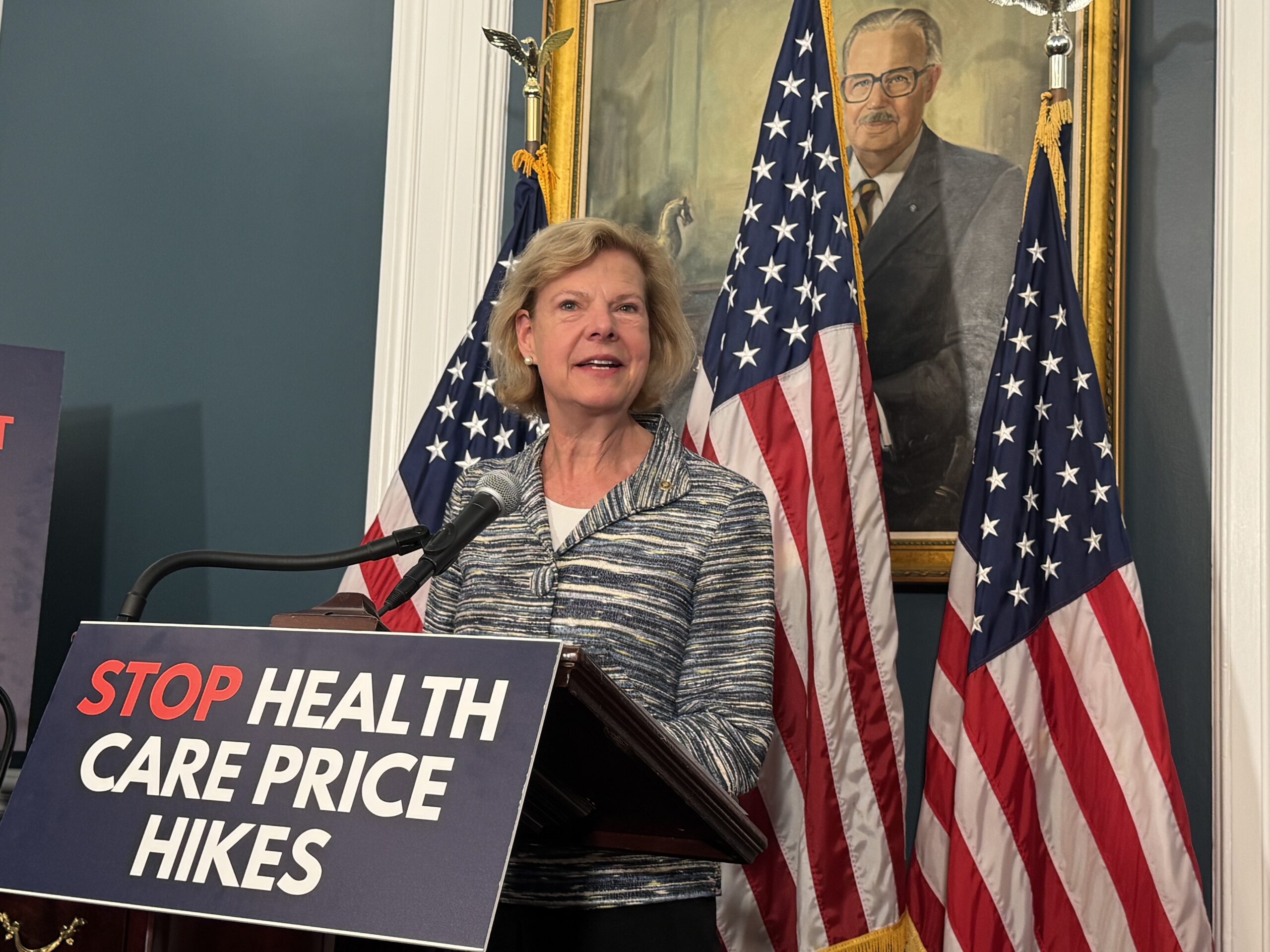
House Speaker Mike Johnson, R-La., said earlier this week that he views that as “a December policy issue, not a September funding issue,” even though open enrollment in that health insurance marketplace begins on Nov. 1 and ends on Dec. 15.
There are several health policy provisions in House Republicans’ stopgap spending bill, though none addressing that particular issue.
Johnson hopes to pass the legislation this week amid a razor-thin majority and some opposition from within his own party. House approval, which is far from guaranteed, would send the bill to the Senate, where it likely will not get the votes to become law before the deadline.
Complicating matters is a week-long recess for Rosh Hashanah. Both chambers are set to return on Sept. 29, with very little time to broker a bipartisan agreement and hold votes, though leaders could cancel part of that break.
No pay for feds during shutdown
The two most recent shutdowns began after GOP lawmakers believed it was the best way to bring attention to significant policy disputes and force Democrats to back their proposals.
But the status quo remained after both shutdowns.
Despite those experiences, Democrats appear ready to gamble they’ll have better luck amid the unprecedented actions of the second Trump administration to challenge the congressional power of the purse and more, though that’s far from a guarantee.
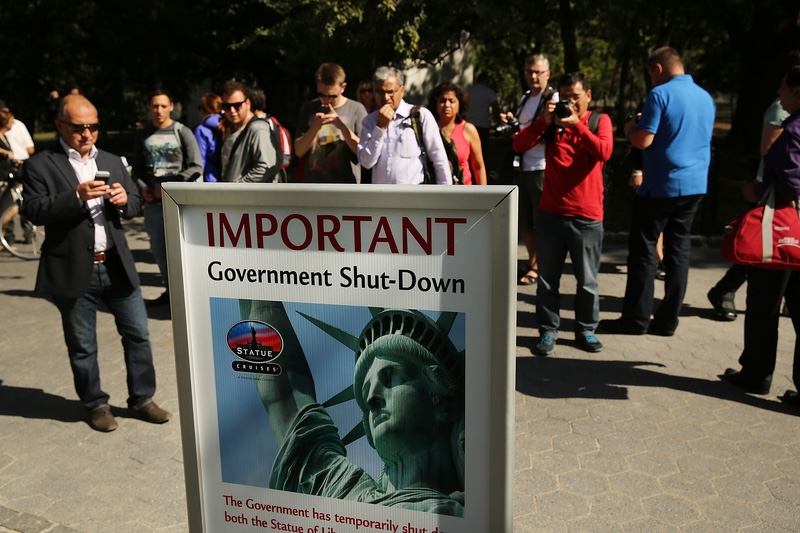
Any shutdown, especially a prolonged one, would cause considerable financial strain for federal employees and Americans who rely on many government services.
Since none of the dozen annual government funding bills have become law on time, all federal workers would go without pay during a shutdown, including those at the Departments of Agriculture, Defense, Health and Human Services, Homeland Security, Interior and Transportation.
Staff for members of Congress, who weren’t affected by the last shutdown, would miss their salaries this time around if a shutdown begins with the new fiscal year on Oct. 1.


![[Aggregator] Downloaded image for imported item #1136342](https://whitecounty.com/wp-content/uploads/2025/09/shutdownsmithsonian-1024x683-1-696x464.jpg)

